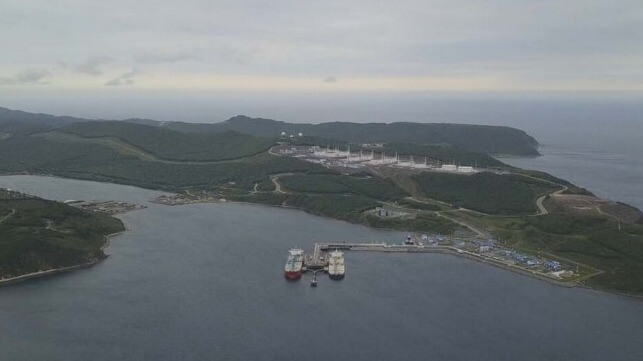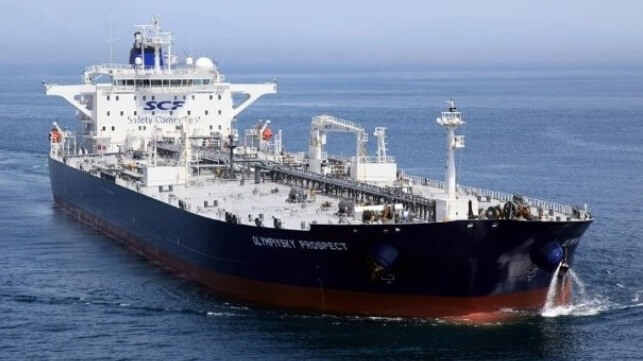International Group: Russian Oil Price Cap is Unenforceable

The International Group of P&I Clubs has informed the British Parliament that the G7 nations' partial sanctions on Russian oil shipping has become "unenforceable." It confirms longstanding warnings about the "price cap" on the Russian oil trade: it has given rise to a parallel tanker industry outside the cap's boundaries. In this "shadow fleet" of aging ships and murky ownership, there is little oversight of standards and safety - and insurance may only exist on paper.
The International Group represents 12 of the world's most reputable insurers, covering about 87 percent of all oceangoing merchant tonnage. Its members are subject to the G7 price cap, and since it was implemented, they have lost about 800 tankers in the Russia-serving fleet to less-established insurers outside the G7 - many of which have uncertain financial strength.
One of the reasons, according to the International Group, is the complicated structure of the cap itself. The price cap allows Western service providers to work with Russian oil cargoes, so long as the cargo is priced below $60 per barrel. Since the P&I insurance provider has no direct knowledge of the cargo's sale price, they are allowed to rely upon the oil trader's attestation alone. If the trader says that the oil was purchased for $59 per barrel, that is good enough for compliance, at least in theory.
In practice, Russian oil is worth more than $60. Market data shows that the Russian ESPO and Sokol grades have traded above $60 per barrel since before the price cap began. The benchmark Urals grade breached the $60 mark last summer and has largely stayed above it, save for a few brief dips.
Since all these grades are averaging above $80 per barrel in the aggregate data, there may be reason to question a trader's attestation of a sub-$60 deal. But the details of how the insurer should check up on the accuracy of the attestation are unclear, leading some G7 insurers to turn down Russian oil cargoes even when they appear compliant.
"The attestation is a flawed regime which potentially exposes both the P&I Club and a shipowner, operator, charterer to a breach," the International Group said. Further, the lack of clarity and possible liability have "resulted in a migration of trade activities outside of the jurisdiction of the G7 and its coalition."
The mechanism only applies to companies within the G7, so the 800-strong "dark fleet" has found safe havens elsewhere. In these new overseas venues, tanker operators and less-established insurers can continue business without trouble from sanctions or safety regulators.
"The [oil price cap], therefore, appears increasingly unenforceable as more ships and associated services move into this parallel trade," the group concluded.
These shadowy tankers may still claim to have P&I cover from reputable G7 insurers, even if they do not. "The little piece of paper a dark ship may have that says it’s insured is not worth the paper it’s written on," Simon Lockwood, an executive with insurance broker WTW, told Politico last year.
In confirmation, Danish authorities recently found that a shadow fleet tanker provided false insurance paperwork after a collision in March.
Report: Sovcomflot is Renaming and Transferring Flags on More Tankers

Russian shipping company Sovcomflot has reportedly resumed the practice of shuffling around sanctioned tankers in an effort to protect the business. According to a new analysis by Bloomberg, at least four of the tankers have changed names and flags as part of the effort after the recent U.S. sanctions in the enforcement effort of the G7 Price Cap on Russian oil. Sovcomflot has regularly used overseas holding companies that make it difficult to track its fleet.
The report highlights that vessels are swapping flags some going international and others going into the Russian registry all to keep the oil flowing. Analysts have said that Russia is trying to keep the oil on its ships to earn the freight monies. Sovcomflot management had noted while reporting its year-end financial results that the sanctions were complicating the business. Reuters quoted Sovcomflot CEO Igor Tonkovidov as saying that the sanctions were "limiting our geography and commercial prospects."
The U.S. Treasury Department began in late 2023 imposing sanctions and listing vessels that were regularly breaking the price cap. The effort also cited ship managers in locations such as Dubai known to be working with Sovcomflot and then in February directly listed the Russian shipping company. Bloomberg calculates that a total of 21 Sovcomflot tankers have been designated including the 14 named in February.
The Bloomberg report cites transfers between the Russian flag and Gabon as well as ships moved into the Russian registry. For example, four tankers, Kemerovo (109,900 dwt), Belgorod (156,700 dwt), Kaliningrad (110,000 dwt), and Krasnoyarsk (109,800 dwt) can be seen in databases swapping between the two flags. They are using alternate names of Columbus, Bravo, Captain, and Creation while registered in Gabon. The vessels were built between 2006 and 2010. Lloyd's List reports Gabon also moved to deflag sanctioned Russian tankers.
Data also shows a strong increase in tonnage for the registry in Gabon. Clarksons highlights that Sovcomflot remains the largest owner of Aframax tankers but the rankings chart shows tonnage registered in Gasbon went from just over 1 million in 2022 to 3 million in 2023 and as of April 1, 2024, is now at 7.4 million GT. They report the number of vessels registered in Gabon has gone from 126 in 2023 to 217 as of April.
After the sanction effort began there were reports that Russian tankers had stropped trips and that India’s refineries, one of the biggest customers were reported pausing shipping on Russian vessels. India’s refineries however have resumed receiving the Russian oil. A report surfaced yesterday that one of the prominent P&I Clubs, International Group, told the British Parliament that the G7 Price Cap has become unenforceable.
Despite the efforts to increase the pressure with the sanctions, Sovcomflot reported for 2023 its net income was just short of $1 billion up by a third. Tonkovidov told reporters that only eight percent of the fleet transporting Russian oil was under the sanctions. Much of the effort has hit at the shadow fleet which consists of older, marginal vessels beyond the Sovcomflot fleet.
No comments:
Post a Comment